第42章 THE STRANGE NEW MAN(4)
But there was the third thing in which the earlier style of Lincoln's was wanting.Marvelously apt for the purpose of the moment,his writings previous to 1861are vanishing from the world's memory.The more notable writings of his later years have become classics.And the difference does not turn on subject-matter.All the ideas of his late writings had been formulated in the earlier.The difference is purely literary.
The earlier writings were keen,powerful,full of character,melodious,impressive.The later writings have all these qualities,and in addition,that constant power to awaken the imagination,to carry an idea beyond its own horizon into a boundless world of imperishable literary significance,which power in argumentative prose is beauty.And how did Lincoln attain this?That he had been maturing from within the power to do this,one is compelled by the analogy of his other mental experiences to believe.At the same time,there can be no doubt who taught him the trick,who touched the secret spring and opened the new door to his mind.It was Seward.Long since it had been agreed between them that Seward was to be Secretary of State.[9]Lincoln asked him to criticize his inaugural.Seward did so,and Lincoln,in the main,accepted his criticism.But Seward went further.He proposed a new paragraph.He was not a great writer and yet he had something of that third thing which Lincoln hitherto had not exhibited.
However,in pursuing beauty of statement,he often came dangerously near to mere rhetoric;his taste was never sure;his sense of rhythm was inferior;the defects of his qualities were evident.None the less,Lincoln saw at a glance that if he could infuse into Seward's words his own more robust qualities,the result--'would be a richer product than had ever issued from his own qualities as hitherto he had known them.
He effected this transmutation and in doing so raised his style to a new range of effectiveness.The great Lincoln of literature appeared in the first inaugural and particularly in that noble passage which was the work of Lincoln and Seward together.In a way it said only what Lincoln had already said--especially in the speech at Harrisburg--but with what a difference!
"In your hands,my dissatisfied fellow countrymen,and not in mine,is the momentous issue of civil war.The government will not assail you.You can have no conflict without being yourselves the aggressors.You have no oath registered in Heaven to destroy the government,while I shall have the most solemn one to preserve,protect and defend it.
"I am loath to close.We are not enemies but friends.Though passion may have strained,it must not break our bonds of affection.The mystic chords of memory stretching from every battle-field and patriot grave,to every living heart and hearthstone all over this broad land,will yet swell the chorus of the Union when again touched as surely they will be,by the better angels of our nature."**Lincoln VI,184;N.&H.,III,343.Seward advised the omission of part of the original draft of the first of these two paragraphs.After "defend it,"Lincoln had written,"You can forbear the assault upon it.I can not shrink from the defense of it.With you and not with me is the solemn question 'Shall it be peace or a sword?'"Having struck this out,he accepted Seward's advice to add "some words of affection--some of calm and cheerful confidence."The original version of the concluding paragraph was prepared by Seward and read as follows:"I close.We are not,we must not he aliens or enemies,but fellow-countrymen and brethren.
Although passion has strained our bonds of affection too hardly,they must not,I am sure,they will not,be broken.
The mystic chords which,proceeding from so many battlefields and so many patriot graves,pass through all the hearts and all hearths in this broad continent of ours,will yet again harmonize in their ancient music when breathed upon by the guardian angel of the nation."These words,now so famous,were spoken in the east portico of the Capitol on "one of our disagreeable,clear,windy,Washington spring days."[10]Most of the participants were agitated;many were alarmed.Chief Justice Taney who administered the oath could hardly speak,so near to uncontrollable was his emotion.General Scott anxiously kept his eye upon the crowd which was commanded by cannon.Cavalry were in readiness to clear the streets in case of riot.
Lincoln's carriage on the way to the Capitol had been closely guarded.He made his way to the portico between files of soldiers.So intent--overintent--were his guardians upon his safety that they had been careless of the smaller matter of his comfort.There was insufficient room for the large company that had been invited to attend.The new President stood beside a rickety little table and saw no place on which to put his hat.Senator Douglas stepped forward and relieved him of the burden.Lincoln was "pale and very nervous,"and toward the close of his speech,visibly affected.Observers differ point-blank as to the way the inaugural was received.The "Public Man"says that there was little enthusiasm.The opposite version makes the event an oratorical triumph,with the crowd,at the close,completely under his spell.[11]
On the whole,the inauguration and the festivities that followed appear to have formed a dismal event.While Lincoln spoke,the topmost peak of the Capitol,far above his head,was an idle derrick;the present dome was in process of construction;work on it had been arrested,and who could say when,if ever,the work would be resumed?The day closed with an inaugural ball that was anything but brilliant."The great tawdry ballroom ..not half full-and such an assemblage of strange costumes,male and female.Very few people of any consideration were there.The President looked exhausted and uncomfortable,and most ungainly in his dress;and Mrs.Lincoln all in blue,with a feather in her hair and a highly flushed face.[12]